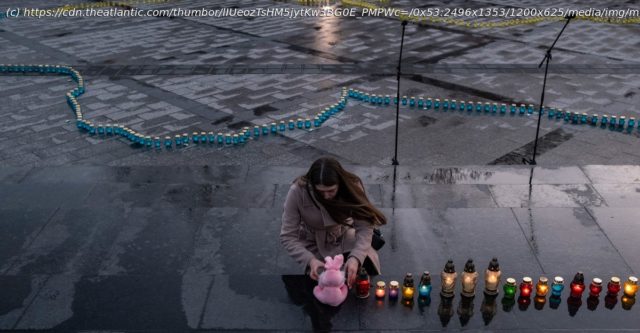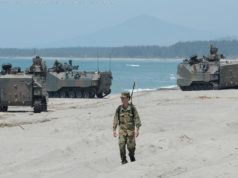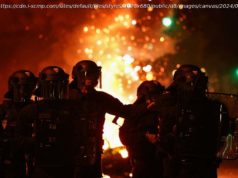For once, we’re not hopeless to help women and investigate war crimes.
About the author: Lauren Wolfe is an award-winning journalist who publishes Chills. She also teaches at New York University’s Arthur L. Carter Journalism Institute. O n March 13, a Russian soldier broke into a school in Malaya Rohan, a village near the Ukrainian city of Kharkiv, which had been relentlessly attacked by Vladimir Putin’s forces for weeks. Locals had congregated in the school’s basement for shelter from the violence. What followed, according to an account from a survivor published by Human Rights Watch, is horrifying but bears detailing. The soldier ordered a 31-year-old woman to another floor of the building and proceeded to rape her repeatedly. He made her perform oral sex, and while she did, he held a gun at her head, or pointed it directly at her face. Twice, he shot at the ceiling. “He said it was to give me more ‘motivation,’” she told HRW. When the seemingly endless attack was finally over, the soldier told the woman his name, his age, and declared himself Russian. Perversely, he also brazenly said that she “reminded him of a girl he went to school with.” The report is among several that have trickled out of Ukraine in the weeks since Russia invaded, incidents of sexualized violence documented by NGOs such as Human Rights Watch, Amnesty International, and various organizations within Ukraine. The reality is that these reports are likely only scratching the surface. Over the decade I’ve spent reporting on sexualized violence in conflict globally, multiple experts have told me that for every woman known to have been raped, there are probably eight to 10 more who haven’t been counted, and that even compiling any sense of the extent of sexual assault in such circumstances can take years. That is what makes the Malaya Rohan story and others like it in Ukraine unusual. We are hearing about these violent acts nearly in real time. We have remarkable detail—sometimes even the name, age, and nationality of the perpetrator. This is unquestionably distressing, yet it also provides a measure of hope: hope that we can get survivors of rape and sexual assault in Ukraine medical and psychological help quickly; hope that we can record their stories so that they may be used in court; hope that, ultimately, however unlikely the possibility may seem now, justice will be served. S exualized violence has been used as a tool in conflict for centuries around the world, whether in Sierra Leone, Bangladesh, Colombia, or elsewhere. Sometimes the use of rape is genocidal, as it was in Rwanda, where ethnic Hutus wanted to impregnate Tutsi women to break their bloodlines, or to pass along HIV. At other times, rape is a crime of opportunity, or a means of declaring one side the “winner” of a war: Estimates vary, but according to historians, both Soviet and American soldiers raped massive numbers of German women as World War II ended. Whether women (and men too) speak out about sexualized violence in any context depends on a number of factors, including culture and religion, the existence of an infrastructure of documentation and investigation, and the extent of medical and psychosocial support for survivors. Even in places with a robust legal system, such as the United States or Western Europe, far too many survivors find no justice, or are afraid to come forward in the first place.






